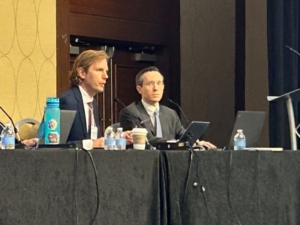The Threat to DEI Programs and Worker Protections: What Employees Need to Know
Attacks on Diversity, Equity, and Inclusion (DEI) programs have escalated, with some companies and lawmakers scaling back efforts to promote fair hiring and advancement. Recent government actions, including pressure from state attorneys general, raise concerns about workplace discrimination. However, federal and Minnesota laws still prohibit bias in employment, and rolling back DEI may actually increase legal risks for employers.
DEI Does Not Mean Hiring Unqualified Candidates
DEI programs do not require companies to hire unqualified applicants. Instead, they help ensure fair access to opportunities by addressing barriers that have historically excluded certain groups. These policies expand applicant pools, reduce bias in hiring, and foster inclusive workplaces—all while keeping merit and qualifications at the core of employment decisions. Misconceptions that DEI lowers standards misrepresent its purpose, which is to create a fair and competitive job market.
Workplace Discrimination Remains Illegal
Despite efforts to dismantle DEI, federal and Minnesota laws still prohibit workplace discrimination. Title VII of the Civil Rights Act bars discrimination based on race, sex, religion, and national origin. The Americans with Disabilities Act (ADA) and Age Discrimination in Employment Act (ADEA) provide further protections. Minnesota’s Human Rights Act (MHRA) goes even further, banning discrimination based on sexual orientation, gender identity, marital status, and more.
Ending DEI Could Be Evidence of Discrimination
Companies that eliminate DEI efforts may be increasing their legal exposure. The National Employment Lawyers Association (NELA) recently explained why litigation risk increases as private employers abandon DEI efforts. Courts could view these rollbacks as:
- A Recognition of Past Bias: If a company once acknowledged inequities and acted to fix them, removing DEI programs could signal a return to exclusionary practices.
- A Sign of Hostility Toward Inclusion: Firing DEI officers or dissolving employee resource groups may suggest discriminatory intent.
- A Basis for Disparate Impact Claims: If workplace diversity declines after DEI cuts, employees may have grounds for legal action.
Minnesota Employees Have Strong Protections
The MHRA ensures that eliminating DEI cannot justify discrimination in hiring, pay, or promotions. Employees facing workplace bias can file complaints with their employer, the Equal Employment Opportunity Commission (EEOC), or the Minnesota Department of Human Rights.
Conclusion
DEI programs aim to create fair workplaces by ensuring qualified individuals aren’t excluded due to bias. As some employers back away from these commitments, workers should stay informed of their rights. Companies that retreat from DEI without safeguarding against discrimination may face legal challenges—and employees should know the law remains on their side. Contact us today if you have questions about DEI efforts, discrimination, or other human rights issues at your workplace.



